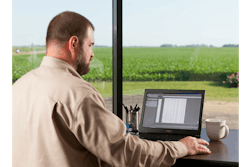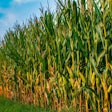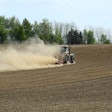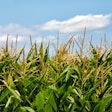
The following essay earned Bethany Olson a $2,500 scholarship from Feed Energy Company for its 2012 “Excellence in Ag” Scholarship Program.
When asked what one believes to be the impact of technology on agriculture, a standard and
common answer might focus on scientific and technological developments that have been made in all areas of the agriculture industry. These developments include (but are certainly not limited to) genetic advancements in the livestock industry, bio-tech agronomic advancements (the implementation of genetically modified organisms in crops), the use of GPS technology in agricultural equipment, and the use of agricultural byproducts in alternative fuel sources. In essence, natural resources were provided to mankind; with time, mankind’s knowledge pertaining to feeding the world has developed in such a way that has ultimately helped to produce food, fuel, and fiber more efficiently.
If someone had asked me five years ago what I believed to be the impact of technology on agriculture, most certainly, the scientific and technological developments which I previously described would have been the topics I used to give an answer. Today, however, my answer encompasses a very different concept. Although it is true that science and technology have drastically changed the agriculture industry (and will continue to make a significant impact on the industry), advancements as results of technology will be for naught if agriculturalists do not overcome the current issue of agricultural illiteracy. Technology is a beautiful thing…unless it is being used to negatively impact the agriculture industry. In my opinion, anti-agriculturalists are making a bigger splash than agriculturalists are in the social media realm of the world.
The power and impact of social media has not yet been fully realized; but already, organizations like PETA, HSUS, Farm Sanctuary, and many others have successfully harnessed the power of social media to do great harm to the agriculture industry. Negative images and messages falsely depicting agriculture have reached millions, if not billions, of internet users all over the world. For those individuals living in the city, a YouTube video posted by PETA may be all that person knows of agriculture. If that person thinks pigs are mistreated, that person might not want to purchase pork anymore. This could have a ripple effect and could potentially be a serious problem. The livelihoods of farmers everywhere are on the line. Not only do the social media actions of these activist groups have an impact on consumer choices, activist groups are gaining support from these consumers. As more and more support is gained for their cause, anti-agriculturalists build up strength to lobby for change in government regulations. Agriculture has been tasked with feeding 9 billion people by the year 2050 using fewer resources and less energy. If additional government regulations are imposed, this goal might be impossible to reach. I recognize the negative impact a simple tweet, blog post, Facebook post, or YouTube video could have on the industry I have chosen to work in for the rest of my life.
I also recognize the positive impact a tweet or online social media post could have. Today, many agriculturalists have to defend themselves with social media. Wouldn’t we make more of an impact if we were to start the conversation? Consumers want and need to know the truth about how their food is produced. The producer responsible for that consumer’s rib-eye steak or ear of sweet corn needs to be the one educating the public. Recently, farm families all across the United States have begun to recognize the importance of telling their stories. Stories about their family farm (eliminating the negative connotation of corporate farming), stories about how they started out in 4-H and FFA learning about animal stewardship (eliminating consumer fears of animal cruelty), or even just stories about what a farmer’s average day looks like. Farmers are sharing these stories through social media, and I believe that this is the start of a movement that will forever change the agriculture industry as we know it. Consumers need to know how and why we produce food the way we do, and internet technology is just the tool to help agriculturalists inform consumers. In order to continue utilizing advanced technologies in the field, agriculturalists will first need to harness the power of social media technology. The impact of that technology will be huge, and I am excited to see just how powerful this technology can be for agriculture.
Bethany Olson attends Iowa State University where she is majoring in Agricultural Business and International Agriculture with a minor in Agronomy. Bethany is a member of the Iowa State University Agricultural Business Club, a member of the Honor Program, a Student Ambassador for the College of Agriculture and Life Sciences (CALS), a member of Collegiate FFA and runs track and cross country for the Cyclones. In addition, Bethany has served as a counselor for the Iowa Agricultural Youth Institute and worked as a peer mentor for Ag Business freshmen. She is also a co-chair of Ag Career Day. Bethany’s past awards include recognition as a CALS Foreman Scholar and the Branstad-Reynolds Undergraduate Scholar. She was raised on a family farm in Jewell, Iowa, and was valedictorian of the South Hamilton High School Class of 2009.

















